How did it happen? Why did we allow it to happen? Could it happen again?
These are the three questions most often asked about the Holocaust, the
whirlwind of murder during which the Nazi-led government of the Third
Reich systematically slaughtered 6 million Jews, along with millions of
victims from other targeted populations"Gypsies, Slavs, the mentally
retarded, the insane, homosexuals, and the physically deformed.
In , Rossel examines the Nazi rise to
power, the role of prejudice and propaganda in the Holocaust, and echoes
of the Holocaust that plagued the world before, during, and after the Nazi
period"and continue to plague us to this day. The Holocaust, he maintains,
did not happen to the Jews alone. It is a tragedy that exposed the
depths of evil we human beings are capable of visiting upon one another.
Yet, the book is not without hope. As philosopher George Santayana
wrote, we must know what happened for "those who cannot remember the
past are condemned to repeat it." At the very least, understanding the
Holocaust enables us to recognize when blowing winds of prejudice
threaten to become tornados and hurricanes to sweep away the innocent.
For, as Rossel states in the Foreword, every echo of the Holocaust offers us
"the opportunity to rise above the worst that is in us and to exercise the best
that is in us."
Seymour Rossel, a long-experienced and gifted educator, here gives yet another
important contribution for readers of every age and background. This book is a rare
and valuable overview of an enormously challenging subject. Every chapter is
accessible, intelligent, and compelling. " David Altshuler, PhD, Founding
Director, Museum of Jewish Heritage
These are the three questions most often asked about the Holocaust, the
whirlwind of murder during which the Nazi-led government of the Third
Reich systematically slaughtered 6 million Jews, along with millions of
victims from other targeted populations"Gypsies, Slavs, the mentally
retarded, the insane, homosexuals, and the physically deformed.
In , Rossel examines the Nazi rise to
power, the role of prejudice and propaganda in the Holocaust, and echoes
of the Holocaust that plagued the world before, during, and after the Nazi
period"and continue to plague us to this day. The Holocaust, he maintains,
did not happen to the Jews alone. It is a tragedy that exposed the
depths of evil we human beings are capable of visiting upon one another.
Yet, the book is not without hope. As philosopher George Santayana
wrote, we must know what happened for "those who cannot remember the
past are condemned to repeat it." At the very least, understanding the
Holocaust enables us to recognize when blowing winds of prejudice
threaten to become tornados and hurricanes to sweep away the innocent.
For, as Rossel states in the Foreword, every echo of the Holocaust offers us
"the opportunity to rise above the worst that is in us and to exercise the best
that is in us."
Seymour Rossel, a long-experienced and gifted educator, here gives yet another
important contribution for readers of every age and background. This book is a rare
and valuable overview of an enormously challenging subject. Every chapter is
accessible, intelligent, and compelling. " David Altshuler, PhD, Founding
Director, Museum of Jewish Heritage




